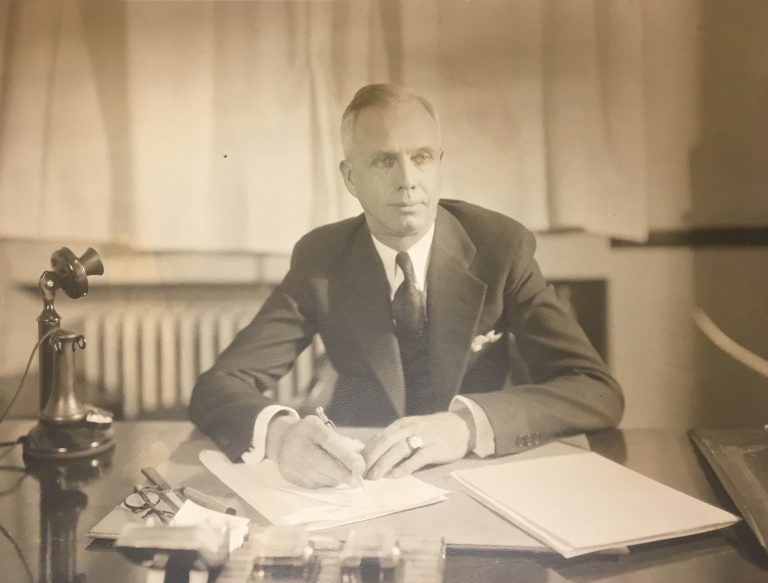Reverend Albert M. Ewert was the chaplain at the Michigan State Prison in Jackson Michigan from 1933-1935. Ewert was part of a reform movement within the penal system across the country. This movement placed an emphasis on education and rehabilitation long before prisoner re-entry programs were officially developed. Along with his suggested reforms of the parole system, Reverend Ewert developed an arts program called the “Progressive Club” as a way for residents to express themselves through music, painting, drawing, creative writing and woodwork. The inmates broadcasted a Sunday morning radio program, and a prison jazz and barbershop quartet became so popular they both were hired on weekends to perform at weddings and parties and in restaurants and nightclubs. A 1933 newspaper report stated, “Development of an arts and crafts division in the Michigan state prison schools is resulting in an unbelievable amount of talent being uncovered among the inmate body.”
Residents of the prison created high quality work that was oftentimes displayed for public viewing.
Albert Ewert remained with the Michigan penal system, serving with a commission studying the penal system, serving as Deputy Assistant Director of Probation, and later as Director of Probation before retiring in 1952. He passed away in Grand Ledge, Michigan in 1984, at the age of 98.
Prison arts programs continued to be part of an overall education system within the Michigan prison system, but saw a resurgence in corrections facilities during the 1990s, not only in Michigan, but nationwide. Programs like the Prison Creative Arts Project through the University of Michigan and Shakespeare in Prison through the Detroit Public Theater seek to help current and former residents of Michigan’s penal system with self-expression, re-integration into society and personal development.


![Albert M. Ewert at his desk at the Michigan State Prison, c. 1933 [Archives of Michigan]](https://tst.michiganology.org/wp-content/uploads/2018/10/Ewert-ca-1933-1024x778.jpg)


